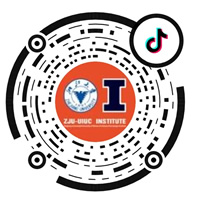Time: Aug 11, 8:00 am CDT , 21:00 pm Beijing Time
ABSTRACT: Recent reports by the National Academies have encouraged investment in developing a more comprehen-sive understanding of network dynamics at the intersection between human and engineered networks. Concurrent-ly, cities are addressing rapid urbanization challenges by implementing socio-technological changes in their infra-structure systems as they evolve toward becoming smarter cities. The success of such an evolution, however, relies on solutions that can combine data from individual infrastructure components to urban scale networks. A great deal of research has focused on developing an understanding of data analytics at the scale of the city and of individual infrastructure components. However, there is a gap in our understanding, data collection approaches, and analytical methods to integrate and visualize such disparate data and complex network dynamics. This presentation will describe efforts to formalize and implement a Smart City Digital Twin platform, with an emphasis on efforts to under-stand, model, and improve energy consumption and disaster mobility across spatial scales in cities, to foster more sustainable, resilient, and livable cities.
BIO: Dr. John E. Taylor is the inaugural Frederick Law Olmsted Professor of Civil and Environmental Engineering at Georgia Tech, where he currently serves as the Associate Chair for Graduate Programs and Research Innovation in the School of Civil and Environmental Engineering. Dr. Taylor received his PhD from Stanford University in 2006. At Geor-gia Tech, he is founder and Director of the Network Dynamics Lab, which focuses on; (1) achieving sustained energy conservation by coupling energy use with occupant networks and examining inter-building network phenomena in cities, and (2) understanding and improving response times by affected human networks during extreme events in urban areas. Dr. Taylor’s research has received over $8M in funding from the National Science Foundation, the Depart-ment of Energy, the Alfred P. Sloan Foundation, and other public and private funding sources. His research was award-ed the National Science Foundation’s CAREER Award in 2011. In 2020, Dr. Taylor was elected into the National Acade-my of Construction for his research and pedagogical efforts to improve urban sustainability and resilience and guide the evolution of smart cities. Dr. Taylor has authored over 250 technical publications, won five journal best paper awards, and founded two technology startups.








